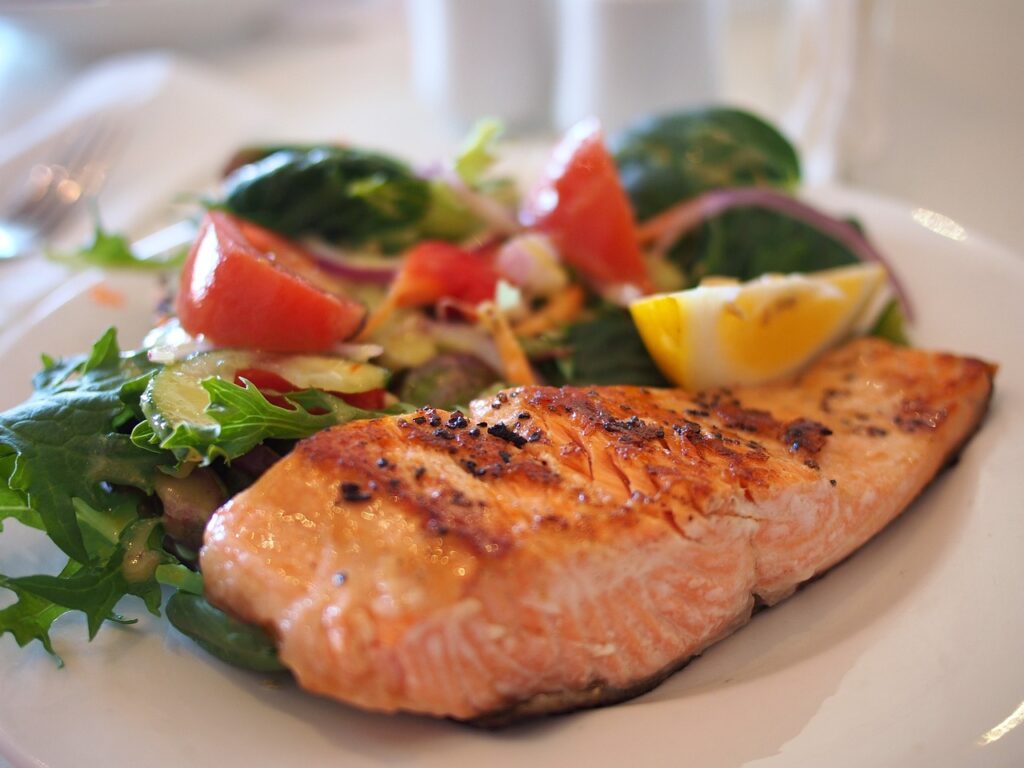In the quest for Fueling a Healthy Heart, the role of nutrition cannot be overstated. Choosing the right foods is a crucial component of any weight loss journey, with direct implications for cardiovascular health. This article explores the science behind selecting the right foods to promote weight loss and support a heart-healthy lifestyle. From nutrient-rich choices to mindful eating practices, we will delve into the specifics of a diet designed not just for shedding pounds but for nurturing a heart in optimal condition.

I. Understanding the Impact of Nutrition on Weight and Heart Health:
A. The Caloric Equation:
Energy Balance: Achieving and maintaining a healthy weight revolves around the balance between calories consumed and calories expended. Understanding this equation is fundamental to weight management.
Nutrient Density: Focusing on nutrient-dense foods ensures that the body receives essential vitamins, minerals, and other compounds without excess calories, supporting overall health and weight loss.
B. Macronutrients and Heart Health:
The Role of Carbohydrates: Choosing complex carbohydrates over simple sugars helps stabilize blood sugar levels and provides a sustained source of energy, contributing to weight management and heart health.
Healthy Fats for Heart Health: Incorporating sources of omega-3 fatty acids, such as fatty fish and nuts, not only aids in weight loss but also supports cardiovascular wellness by reducing inflammation and improving lipid profiles.

II. Building a Heart-Healthy Plate:
A. Prioritizing Whole Foods:
The Power of Fruits and Vegetables: Rich in fiber, vitamins, and antioxidants, fruits and vegetables are essential components of a heart-healthy diet. They contribute to weight loss by promoting satiety and providing necessary nutrients.
Whole Grains for Sustained Energy: Choosing whole grains over refined grains ensures a steady release of energy, supporting weight management and preventing spikes in blood sugar.
B. Lean Proteins for Weight Loss:
Protein’s Role in Satiety: Including lean protein sources like poultry, fish, tofu, and legumes in meals helps promote a feeling of fullness, reducing the likelihood of overeating and supporting weight loss.
Muscle Preservation: Adequate protein intake is crucial during weight loss to preserve muscle mass, ensuring that the body primarily burns fat for energy.

III. Mindful Eating for Weight Loss and Heart Health:
A. Understanding Hunger and Fullness:
Listening to Body Signals: Practicing mindful eating involves paying attention to hunger and fullness cues, allowing for a more intuitive approach to food consumption.
Emotional Eating Awareness: Recognizing emotional triggers for eating and developing alternative coping mechanisms is essential for breaking the cycle of emotional eating, supporting both weight loss and emotional well-being.
B. Slow Eating and Portion Control:
The Importance of Slow Eating: Eating slowly allows the body to register satiety, reducing the likelihood of overeating and promoting a mindful approach to meals.
Portion Control Strategies: Using smaller plates, measuring portions, and being mindful of portion sizes contribute to better calorie management and facilitate weight loss.

IV. Superfoods for a Healthy Heart:
A. Berries for Antioxidant Power:
Anthocyanins and Heart Health: The antioxidants found in berries, particularly anthocyanins, have been linked to improved cardiovascular health and may support weight loss efforts.
Incorporating Berries: Adding berries to smoothies, yogurt, or enjoying them as a snack enhances both the nutritional content of the diet and its potential for weight loss.
B. Fatty Fish and Omega-3 Rich Foods:
Omega-3 Fatty Acids for Cardiovascular Health: Fatty fish like salmon, mackerel, and sardines provide omega-3 fatty acids that support heart health by reducing inflammation and improving cholesterol levels.
Integrating Omega-3 Rich Foods: Including fatty fish in the diet or opting for plant-based sources of omega-3s like flaxseeds and chia seeds contributes to a heart-healthy eating pattern.

V. Hydration and Heart Health:
A. The Role of Water in Weight Loss:
Supporting Metabolism: Staying adequately hydrated is crucial for maintaining metabolic function, supporting the body’s ability to burn calories efficiently.
Caloric Beverage Alternatives: Choosing water over sugary beverages or calorie-laden drinks aids in weight loss by reducing overall calorie intake.
B. Green Tea and Its Benefits:
Antioxidants and Weight Loss: Green tea contains antioxidants called catechins, which may enhance metabolism and support weight loss efforts.
Incorporating Green Tea: Drinking green tea as part of a balanced diet may offer additional benefits for weight management and cardiovascular health.

VI. Seeking Professional Guidance for Personalized Nutrition:
A. Consultation with Registered Dietitians:
Individualized Nutrition Plans: Registered dietitians can create personalized nutrition plans that take into account individual health needs, preferences, and weight loss goals.
Addressing Nutrient Gaps: Professional guidance ensures that nutritional needs are met, reducing the risk of nutrient deficiencies during weight loss.
B. Collaboration with Healthcare Providers:
Monitoring Health Parameters: Regular check-ups with healthcare providers allow for the monitoring of health parameters, ensuring that weight loss occurs in a safe and sustainable manner.
Medications and Weight Management: Some medications may affect weight; consulting with healthcare professionals helps navigate the complexities of weight loss in the context of existing medical conditions and medications.

Conclusion:
In conclusion, the journey to a healthier heart through weight loss is intricately tied to the choices we make in the kitchen. From nutrient-dense whole foods to mindful eating practices, each decision plays a role in shaping not just our weight but the overall health of our cardiovascular system. By understanding the science behind nutrition, incorporating heart-healthy superfoods, and seeking professional guidance when needed, individuals can embark on a transformative path towards sustained weight loss and a heart that thrives in optimal condition when you Fueling a Healthy Heart
